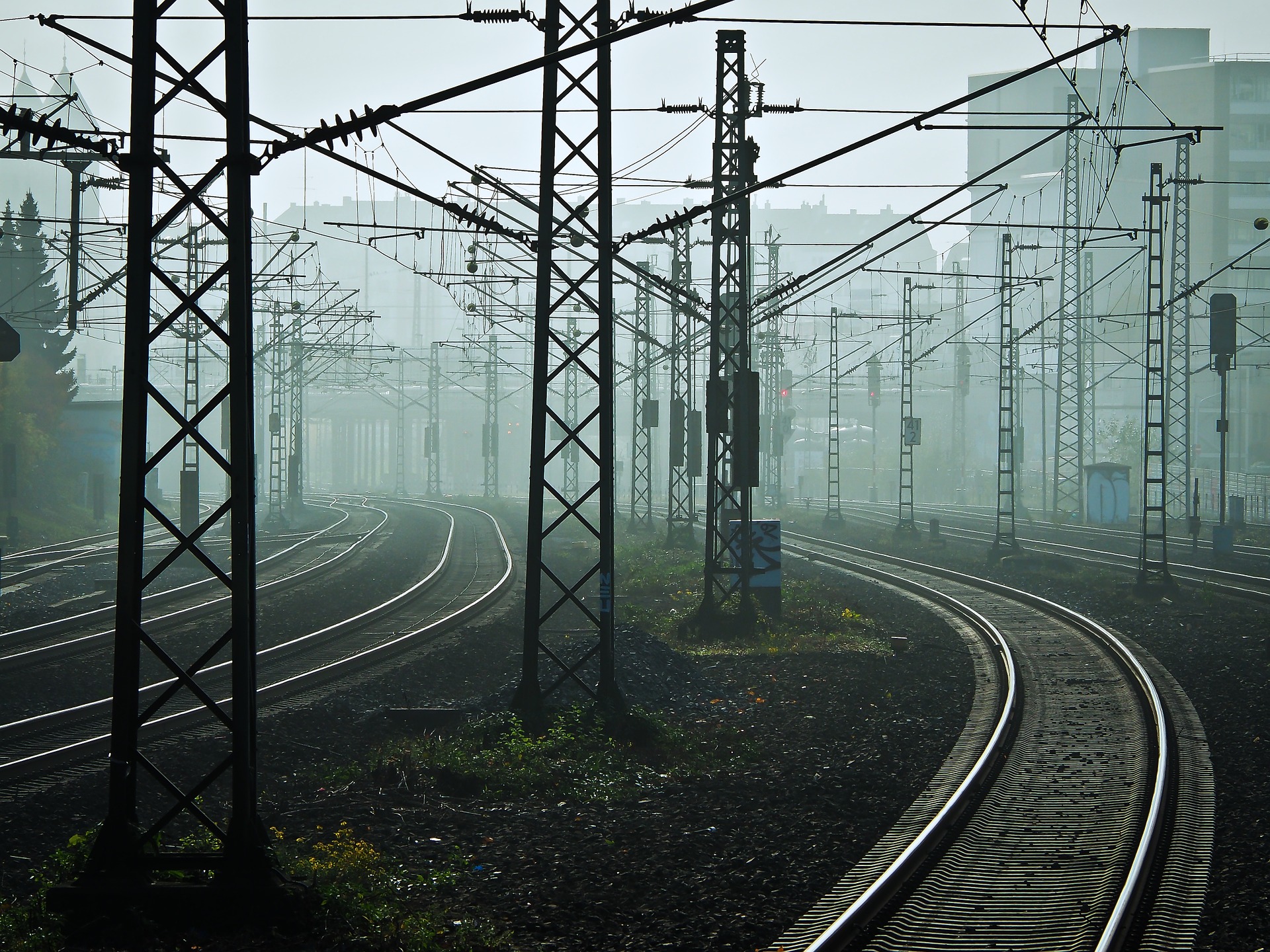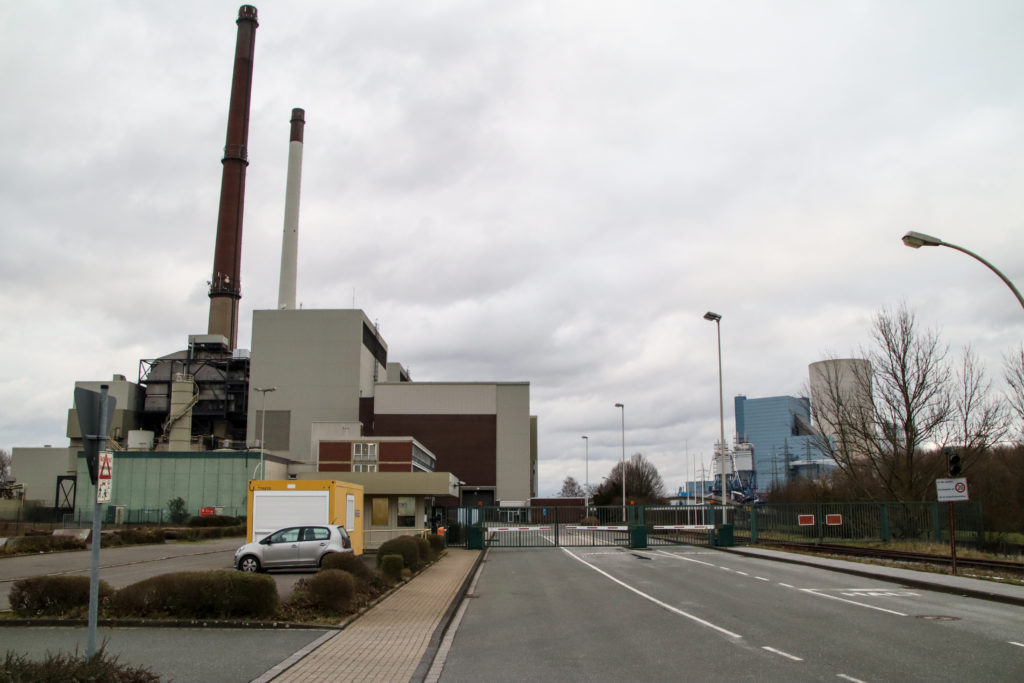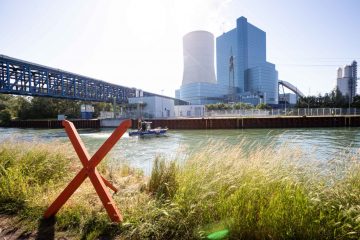No need for Datteln 4

In February 2014, the old Datteln units (1, 2 and 3) were closed down. And what happened? Absolutely nothing. Yet six years later, Datteln 4, the power plant that was originally intended to replace these units, is scheduled to go ahead. However, since 2014 there have been no supply gaps, therefore there is nothing to compensate for. In short there is no need for Datteln 4 to be put into operation.
Uniper is now advertising Datteln 4 as one of the most advanced and efficient coal-fired power stations in the world. We are told that it will have an efficiency rating of 60% and produce 1.055 MW of electricity and 380 MW of combined heat and power - enough to power 100,000 households. Although these figures sound nice in theory, the reality is a different one.

Combined heat and power generation: 380 MW
Currently, on the site of the old Datteln units there is still an auxiliary boiler in operation - it supplies around 1500 households. Initially it was run on fuel oil, but it has recently been converted to natural gas. (Q1)1)https://www.waz.de/staedte/vest/hilfskessel-sichern-die-fernwaerme-id9162400.html The auxiliary boiler could be replaced by opening Datteln 4- or it could simply continue to run. Uniper has even installed a new backup and peak load boiler system as a backup for if this boiler was to fail.2)https://www.uniper.energy/sites/default/files/2017-09/hintergrundbericht_fernwarme_web.pdf
Although Datteln has good infrastructure as far as district heatings is concerned, E.ON is a monopolist who last exploited this position in 2015 by raising the prices drastically. Residents had no choice but to pay E.ON more money.3)https://www.24vest.de/datteln/eon-fernwaerme-wird-teurer-12491761.html
Now, we know the auxiliary boiler only supplies 1500 households, so which 100,000 households are to be supplied? If this is the case, the power plant would be able to produce far less than the targeted 380 MW, or 15% efficiency for district heating.
The heat, which is to be obtained from coal, will then not be used by the households but rather conducted into the form of steam into the cooling tower with the other gases and escape into the atmosphere.
Adding to this, the 380 MW is only the maximum possible output for e.g cold winter days. In the summertime, a maximum of 200MW is to be expected. There are no large industrial plants that require and utilize this heat all year round in the vicinity of the power plant.
Power: 1.055 MW
After the Datteln units 1-3 were shut down, renewable energy sources as well as other power plants filled the gaps and fed the remaining energy according to demand. But despite the many warnings we heard from Company representatives and politicians, there were no blackouts. So the question of ‘Where will this electricity go?’ arises. In addition to customer contracts, about 20% of this electricity is to be fed into the public grid. This electricity is traded on the electricity exchange and could possibly displace the comparatively more environmentally friendly electricity from expensive gas power plants.
Customer contracts
RWE and Deutsche Bahn have secured long-term electricity supplies at the ‘favourable’ prices that prevailed between 2005 and 2007. They assumed that they would be supplied with electricity just a few years later. A decision that both customers are sure to regret bitterly today.
RWE
RWE kaufte 2005 und 2006 in zwei Verträgen 450 MW. Da die Strompreise seither gesunken sind und auch RWE inzwischen erkannt hat, dass fossile Energieträger nicht für das eigene Image taugen, kündigte man 2017 den Abnahmevertrag mit Uniper.
Uniper, on the other hand, took legal action4)https://www.n-tv.de/wirtschaft/kurznachrichten/Uniper-klagt-im-Streit-mit-RWE-article19860796.html
against the cancellation of the contracts and won in court.5)https://rp-online.de/wirtschaft/datteln-uniper-siegt-gegen-rwe-vor-gericht_aid-19047705
Das OLG Hamm bestätigte dieses Urteil sogar, nachdem RWE in Revision gegangen war. Als letzte Instanz entschied der Bundesgerichtshof über diese Klage.6)https://www.finanznachrichten.de/nachrichten-2019-11/48177579-rwe-kaempft-vorm-bgh-gegen-strombezug-aus-datteln-4-015.htm
Rail
In 2007, Deutsche Bahn purchased 413 MW of electricity at 16.7 Hz, a frequency which only the railway needs. Datteln 4 is expected to supply around a quarter of the entire German traction current7)https://www.zeit.de/mobilitaet/2020-02/deutsche-bahn-oekostrom-kohlekraftwerk-datteln-4-mobilitaet-klimaschutz - and this at a time when the Deutsche Bahn is making great efforts to become carbon neutral as quickly as possible. For Germany’s largest electricity consumer, Datteln 4 is a big obstacle, blocking the way to Climate neutrality.
Es stehen nun zwei Szenarien stehen im Raum:
1) Deutsche Bahn does not even call up the energy, but pays it’s money for it and instead supplies itself with Green electricity.
2) Sie nimmt den teureren Strom an und freut sich darauf, wenn im nächsten Jahrzehnt endlich das letzte fossile Kraftwerk vom Netz ist und die Bahn wirklich klimaneutral fährt.
In beiden Fällen wird die Bahn die überhöhten Stromkosten an ihre Kunden, die Bahnfahrer, Sollten diese alten Verträge gekippt werden und Uniper die Bahn und/oder RWE als Großkunden wider Willen verlieren, so würde die Wirtschaftlichkeit des ganzen Kraftwerks in Frage stehen.
Uniper itself writes in its annual report "this could have a significant negative impact on the profitability of the operation of Datteln 4."8)https://ir.uniper.energy/download/companies/uniperag/Annual%20Reports/DE000UNSE018-JA-2017-EQ-D-01.pdf (p. 61)
Stand: 01.12.2020
Sources:


